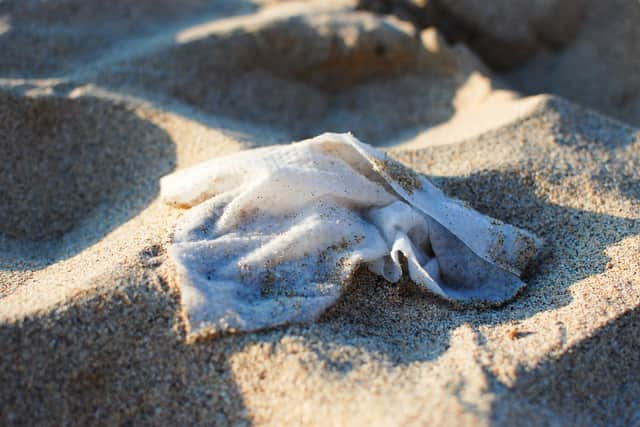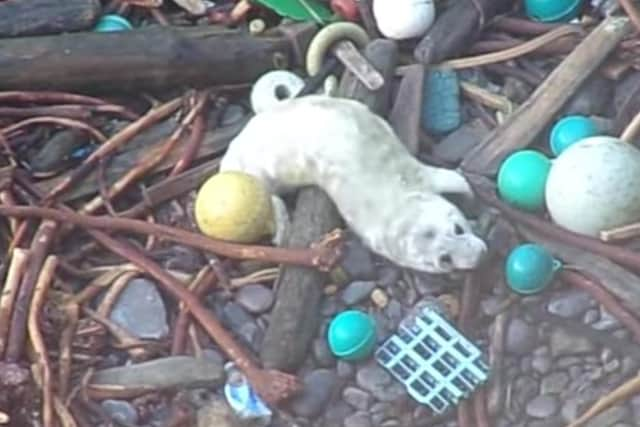Call for ban on wet wipes to end blight of plastic pollution on Scottish beaches
The call comes after analysis of rubbish collected during the latest annual Great British Beach Clean, organised by the Marine Conservation Society.
It showed the disposable cloths were one of the most common manmade items polluting the Scottish coastline, despite an overall drop in the amount of litter collected this year.
Advertisement
Hide AdAdvertisement
Hide AdPlastic pieces and polystyrene items remained the most prevalent type of trash found across the country in 2021, making up 70 per cent of the total and with an average of 101 items found on every 100m of beach surveyed.


Wet wipes came in at second place, part of a continuing trend that has seen them consistently in the top 10 most common litter items on Scottish beaches over the last five years.
Crisps and sweets packets, lolly sticks and other confectionery packaging took third place, followed by string and cord in fourth and glass items at number five.
Meanwhile, only half as many plastic cotton bud sticks were recorded this year compared to the number recovered in 2020.


The 2021 Great British Beach Clean, which took place from 17 to 26 September, saw 6,176 volunteers head outside to clear litter from more than 55,000m of UK beaches.
A total of 5,065kg of rubbish was collected and recorded over the week, including 2,002kg north of the border.
In Scotland, 15,575m of shoreline were scoured by 1,531 volunteers, who between them picked up 592 bags of waste.
Results show the amount of litter recorded per 100m has been dropping year on year.
Advertisement
Hide AdAdvertisement
Hide AdAcross the UK an average of 385 items were found, dropping from 425 in 2020 and 558 in 2019.
In Scotland the 2021 average was 346 on every 100m stretch of shore, up from last year’s 298 but down from 559 in 2018 and 491 in 2019.
It’s thought the overall decrease in rubbish can be put down to measures such as single-use plastics bans and charges put in place in Scotland and across the UK.
The Scottish Government introduced a 5p levy on carrier bags in 2014, doubling that to 10p earlier this year, and outlawed the making and selling of plastic-stemmed cotton buds in 2019.
However, plans to roll out a deposit-return system for drinks containers – originally due to start in April this year – have been repeatedly postponed, with no firm date set out.
Catherine Gemmell, Scotland conservation officer at the Marine Conservation Society, said: “I can’t believe that in 2021 our volunteers are still having to pick up plastic-filled wet wipes on Scottish beaches.
“We know policies from government work, as evidenced by the drop in numbers of single-use plastic bags and cotton buds on beaches.
“But time is running out. We need action now – from government and industry.
Advertisement
Hide AdAdvertisement
Hide Ad“Banning single-use plastic wet wipes is such an easy step to take in order to help achieve a circular economy and a society of reuse, repair and refill.
“The long-awaited deposit-return scheme for Scotland could be another groundbreaking policy which would have an instant impact on the amount of drinks litter we see on Scottish beaches every year.
“There’s no more time for delay – plastic pollution must be tackled now, and it’s time for the Scottish Government to step up.”
A message from the Editor:
Thank you for reading this article. We’re more reliant on your support than ever as the shift in consumer habits brought about by coronavirus impacts our advertisers.
If you haven’t already, please consider supporting our trusted, fact-checked journalism by taking out a digital subscription.
Comments
Want to join the conversation? Please or to comment on this article.
